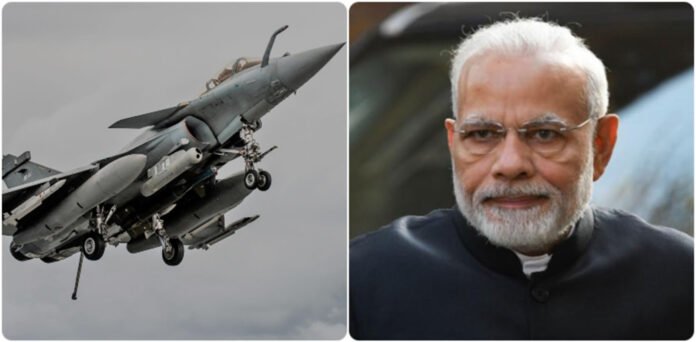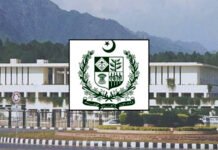The Rafale deal corruption controversy has been one of the most talked-about political and defense-related debates in India in recent years. It centers around the 2016 agreement between the Indian government and France for the purchase of 36 Rafale fighter jets manufactured by Dassault Aviation. While the government has maintained that the deal was done transparently and in the best interest of national security, the opposition, particularly the Indian National Congress, led by Rahul Gandhi, raised serious allegations of corruption, crony capitalism, and procedural irregularities.
The origins of the deal date back to the United Progressive Alliance (UPA) government led by the Congress party, which initiated the process of acquiring 126 fighter jets for the Indian Air Force through a competitive bidding process. Dassault Aviation’s Rafale was eventually selected as the winner of the Medium Multi-Role Combat Aircraft (MMRCA) competition. The plan was to buy 18 jets in fly-away condition and manufacture the remaining 108 in India in collaboration with Hindustan Aeronautics Limited (HAL).
However, after the Bharatiya Janata Party (BJP)-led National Democratic Alliance (NDA) came to power in 2014, the earlier deal was scrapped, and a new inter-governmental agreement was signed in 2016 to purchase 36 Rafale jets in fly-away condition.
The revised deal attracted criticism primarily because of the significant increase in cost per aircraft and the change in the Indian offset partner from HAL to a newly formed company, Reliance Defence, led by industrialist Anil Ambani. Rahul Gandhi and other opposition leaders alleged that the Indian government deliberately removed HAL from the deal to benefit Reliance Defence, a company with no prior experience in the defense sector. Gandhi called it “a textbook case of corruption,” alleging that Prime Minister Narendra Modi personally interfered in the negotiations to favor Anil Ambani.
Rahul Gandhi also repeatedly raised the issue in Parliament and public rallies, famously referring to Modi as “Chowkidar chor hai” (the watchman is a thief), accusing him of betraying the country’s trust. He claimed that the government had paid much more per aircraft compared to the earlier negotiations under the UPA government, and that no justification was provided for the price hike. The Congress party demanded a Joint Parliamentary Committee (JPC) probe into the deal, stating that only an independent investigation could bring out the truth.
Other opposition leaders joined in the criticism, including leaders from the Aam Aadmi Party, the Trinamool Congress, and the Left parties. They questioned why Reliance Defence, with no track record in aerospace manufacturing, was chosen over HAL, which has decades of experience in producing military aircraft. The issue gained further traction when French media reports suggested that Dassault was allegedly pressured to choose Reliance as its offset partner in order to seal the deal. This was denied by Dassault and both governments, but it added fuel to the political firestorm in India.
The controversy deepened further when Mediapart, a French investigative news portal, published reports in 2021 claiming that the French anti-corruption agency Agence Française Anticorruption (AFA) had found evidence of irregularities in Dassault’s dealings, including suspicious payments made to a middleman. According to Mediapart, these payments could potentially be linked to securing the Rafale contract. These revelations brought renewed attention to the deal, with opposition parties demanding that the Indian government respond to the new information and allow for a thorough probe into the matter.
In India, the Public Accounts Committee (PAC) of Parliament, led by Chairman Adhir Ranjan Chowdhury, also expressed concern over the deal. Chowdhury, who is a senior Congress leader, stated that the PAC had the authority to summon officials and examine files related to the deal. He called on the government to allow the PAC to scrutinize the Rafale agreement in detail.
Although the PAC is responsible for auditing government expenditure, its powers are limited, especially when it comes to sensitive matters involving national security. The government maintained that the deal was already reviewed by the Supreme Court and the Comptroller and Auditor General (CAG), and no wrongdoing had been found.
The Supreme Court of India, in its 2018 verdict, had dismissed petitions seeking a court-monitored probe into the deal, stating that it did not find any evidence of wrongdoing. The court said that the process of procurement appeared to be clean, and it did not have the expertise to examine the pricing details of military hardware.
The government used this judgment as a defense against opposition attacks, stating that the highest court had already given a clean chit to the Rafale deal.
However, critics argued that the Supreme Court’s decision was based on information provided by the government in sealed covers, and some details were allegedly incorrect or misleading. The CAG report on the deal, which was presented to Parliament, stated that the new deal was 2.86 percent cheaper than the UPA-era negotiations, but it did not disclose actual pricing details due to confidentiality clauses. This led to further skepticism, with opposition leaders claiming that key facts were being hidden under the pretext of national security.
Despite the government’s efforts to close the issue, the Rafale controversy remains a politically sensitive topic in India. It has been used by the opposition as a symbol of alleged corruption, favoritism, and the lack of transparency in defense deals. Rahul Gandhi, in particular, has used the issue to question the credibility and integrity of the Modi government, portraying it as a betrayal of public trust and a misuse of power for the benefit of select business interests.
Even as the jets began arriving in India and were inducted into the Indian Air Force, the political storm surrounding the deal has not completely subsided. For many, the controversy reflects the need for greater transparency and accountability in defense procurement, especially when deals involve billions of dollars in public funds. The issue also highlights the challenges of balancing national security concerns with democratic oversight in a country where defense deals have often been shrouded in secrecy.
In conclusion, the Rafale deal scandal has been a complex and contentious issue involving political allegations, international scrutiny, and domestic legal challenges. Rahul Gandhi and other opposition leaders continue to view the deal as emblematic of the Modi government’s alleged misuse of power, while the government maintains that the procurement was done in a transparent and strategic manner.
other parliament members also called for scrutiny underlines the demand for institutional oversight. As long as unanswered questions remain and new revelations continue to emerge, the Rafale controversy is likely to remain a topic of debate in India’s political and public discourse.



